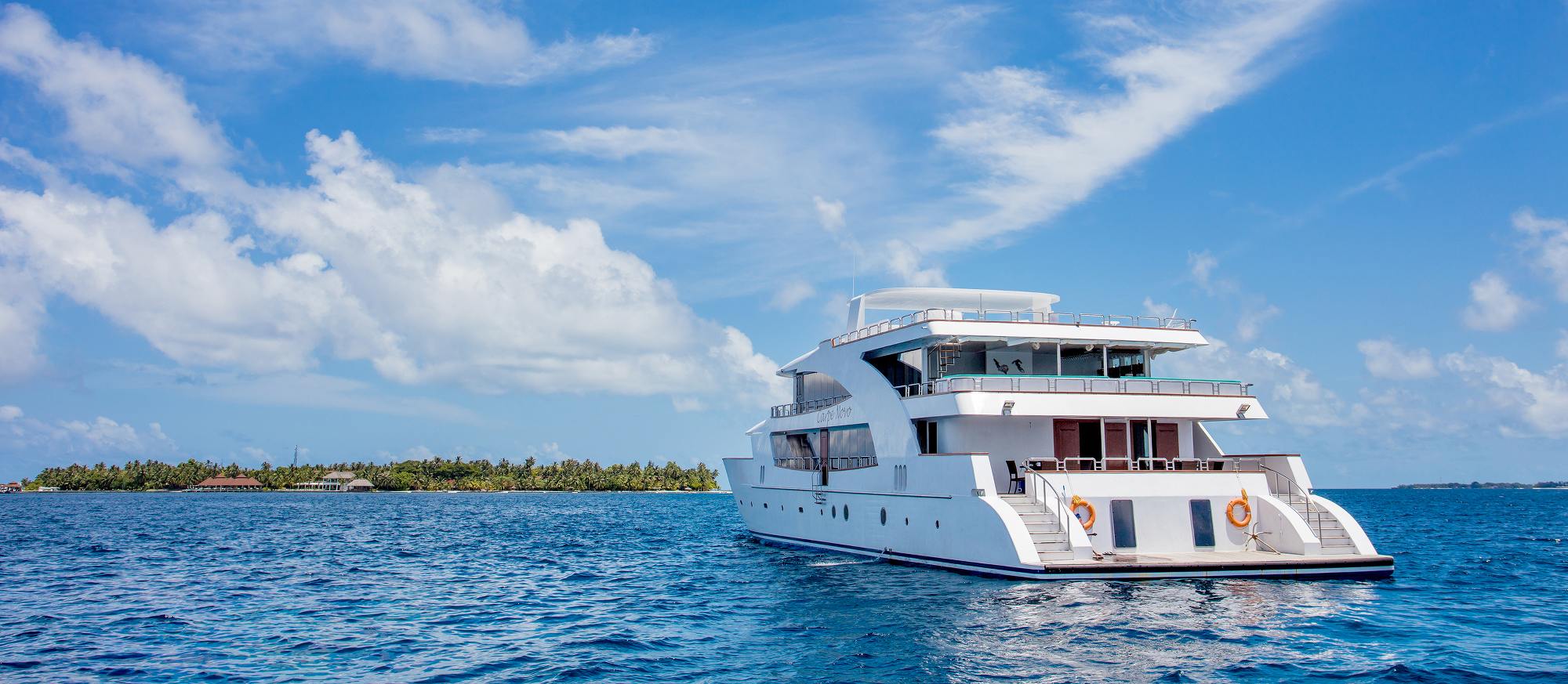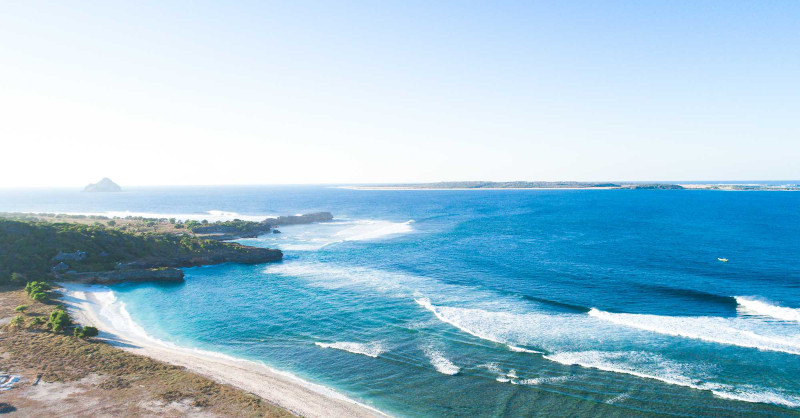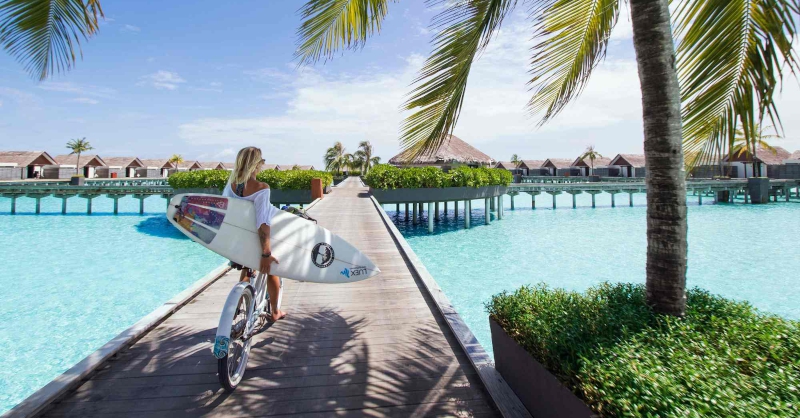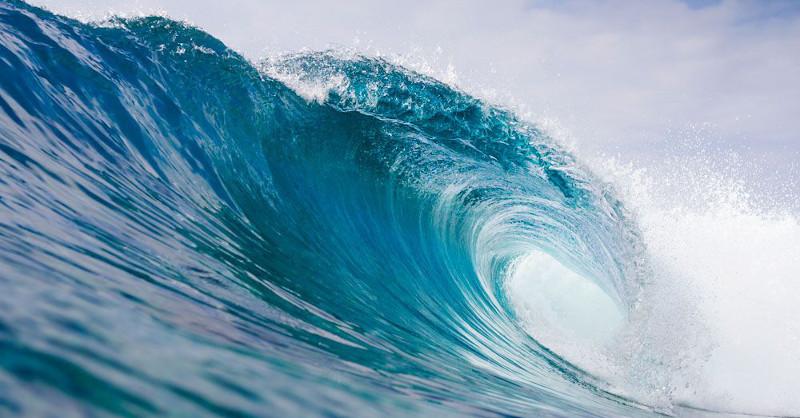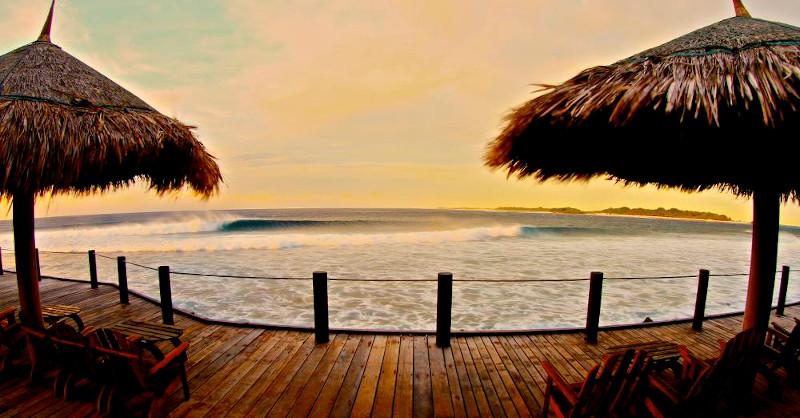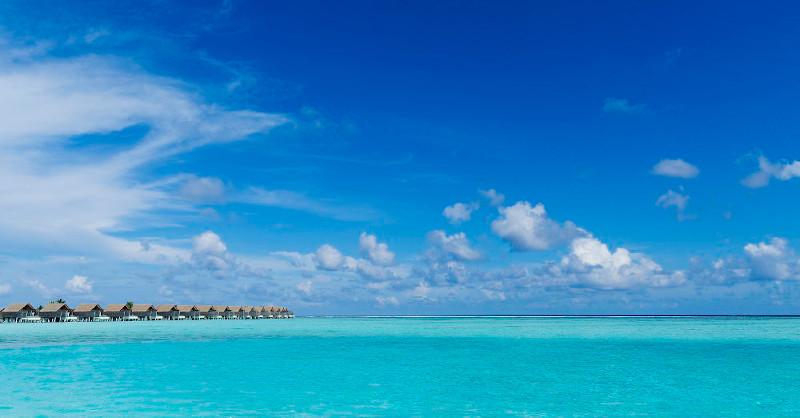An interview with surf legend Tom Curren aboard the luxurious Gurahali in the Maldives with LUEX. Tom tells us about the finless movement, surfing ocean waves on skimboards, his music career, and balancing family life with a pro surfing career.

Interview: Tom Curren in the Maldives with LUEX
I was recently lucky enough to run a boat trip in the Maldives for some friends and clients – including Tom Curren, all-time surfing legend and all-around good guy. Like the seaplane-powered trip the previous year, it was a great success: the Maldives never disappoint, especially when you’re with a great group of people on board the incredible boat ‘Gurahali.’
RELATED Article: How to Plan a Surf Boat Trip
Surfing with Tom was such an awesome experience. He doesn’t really need an introduction – he’s for sure one of the legends of the surfing world. Everyone’s seen the videos of his soul carves at JBay back in the day… Most of the time he’s just such a genuine and down to earth guy, but when he gets in the water he really does rip – somehow even surfing the open faces on a skimboard! Towards the end of the trip we sat down to do this interview, talking about everything from skimboards and the finless movement, to Tomo Boards, music, and how a career in surfing affects family life. Either click to watch the video below, or scroll down to read the full transcript.
Tom: Thank you! It’s awesome. It’s amazing. Beautiful boat, and everything.
Tom: Yeah, it’s really a good thing. I don’t mind the waves being a little bit slower; there’s always some kind of surfboard that works for any kind of waves, and you can always have a lot of fun. The good thing about surfing with the level of some of the guys [here] who are just kinda finding their way out there, is that they’re always like really stoked, so that’s more important than being good, I think, just being stoked. So you know, if you’re surfing with a bunch of pros who’re complaining about bad waves then it’s not fun. And then some of the guys [here] are quite good, as well.
Tom: Right now I’ve been starting to ride twin fins again, so that’s been a lot of fun. The thing about twin fins is that they just really have a lot of drive, and they’re a little bit hard to control. But around 1979, I think, was when I started riding twin fins. That changed everything ‘cos we were riding single fins before, and then this year I happened to try out a couple of twin fins that were really fun – a little hard to ride backhand. But I’ve tried twin fins, on like a modern board, and on some of the new fun shapes it works really well. Single fins are a lot of fun but, you know, it’s just a different thing. You don’t expect to get the same out it as a regular conventional 3 fin.
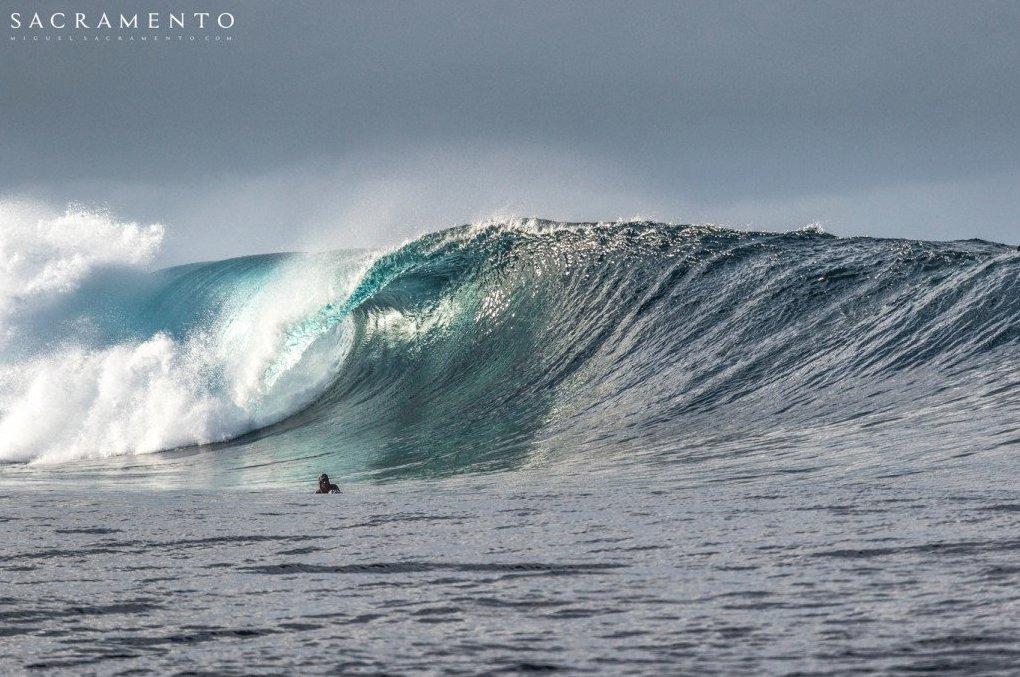
Tom: Actually I’ve been trying more of a modern shape. I have this one board that I tried called a Wizard Sleeve. It’s an Al Merrick design, and basically it has kind of a rounder nose on it, and a little bit more width forward, which is kinda like what a twin fin is. Overall a twin fin set up doesn’t work as well on a regular thruster, so if you just put twin fins on a regular 3 fin set up board, it will work, but it wont work as well. So you want kind of the wide point forward.
Tom: Yeah, the boards Daniel (Thomson) is making now. I have a 5’2 and a 5’6, seems pretty small but there’s enough volume and they’re made from extruded polystyrene, so they tend to float more than polyurethane foam [boards]. Daniel’s a really good surfer and he’s made a lot of experimental shapes, and it’s great to see what he’s doing. I really like the parallel aspect of the boards because you can really, they just seem to go faster, I think. So I think he’s got some kind of breakthrough there because he’s gone real narrow but the board is more parallel. So I think what he’s doing – it’s not perfect – but it’s maybe an advance.
Tom: Actually I think they’re good for all surfers because you can just, y’know, go up in size and volume and use the same board. Generally the boards with the squared off nose are pretty easy to surf, so I think they’re a lot of fun, they’re easy to turn. Usually they’re smaller than a regular board so that’s the main problem at first – you have a little trouble catching waves. On the other hand they’re really good for duck dives, ‘cos they’re small.

Tom: I started riding stand up on a boogie board and it was kind of a fun thing to do at home in the summer. The boogie board is, I think, one of the greatest inventions ever because its just an amazing piece of equipment: so small, so simple right, and it has the flex, and you know it just works amazing and people are doing great things with the boogie board. So if you get in the right waves you can get a good ride, but now the skim boards. I was surfing with Brad Domke in Mexico, and just kinda watching what he’s doing, trying to figure out how he does it, because he’s really surfing the wave with the board like a surfboard. The key is the edge is really hard, so it stays in the wave face and you don’t need fins as much with that really hard edge; it holds in so the fun thing about it is you can go really fast, but the hard part is that, y’know its obviously very hard to paddle. I use a soft board to catch the waves and stuff, but it’s a lot of fun. It’s hard too, so I like the challenge I guess.
Tom: Well right now I’m really excited about the whole finless movement. It’s really exciting! I think there’s a lot going on there, and I think there’s going to be a lot of progression in the board designs. A lot of people are really enjoying riding finless boards, you know, it’s not the same: they won’t out-perform regular boards, I guess, for now, but maybe some day it’ll be a kinda shift in board design. But you asked me the other day if I get bored surfing waves that are not really super thrilling or challenging, I think the key there for me is that either you try a different board or something that you’re not usually used to, or body surfing or something, and just to be in the water is enough. It doesn’t have to be… The surf doesn’t have to be incredible to enjoy it.
Tom: Wow, that’s a great question. A boat trip. Where I live is actually really good for boat trips, you know. Santa Barbara is kinda ideal to have a boat, ‘cos especially in the summer there’s a lot of waves on the islands, but the islands are in front of the town and so I haven’t had a chance to do much of going out on a boat trip at home. So I would maybe try to do that actually. And of course the places like here – the Maldives – are absolutely incredible. The water colour is, I think the bluest water I’ve ever seen actually, and the waves are good: you get a good swell and you get barreled all day. It’s a bit far, but it’s definitely worth it.
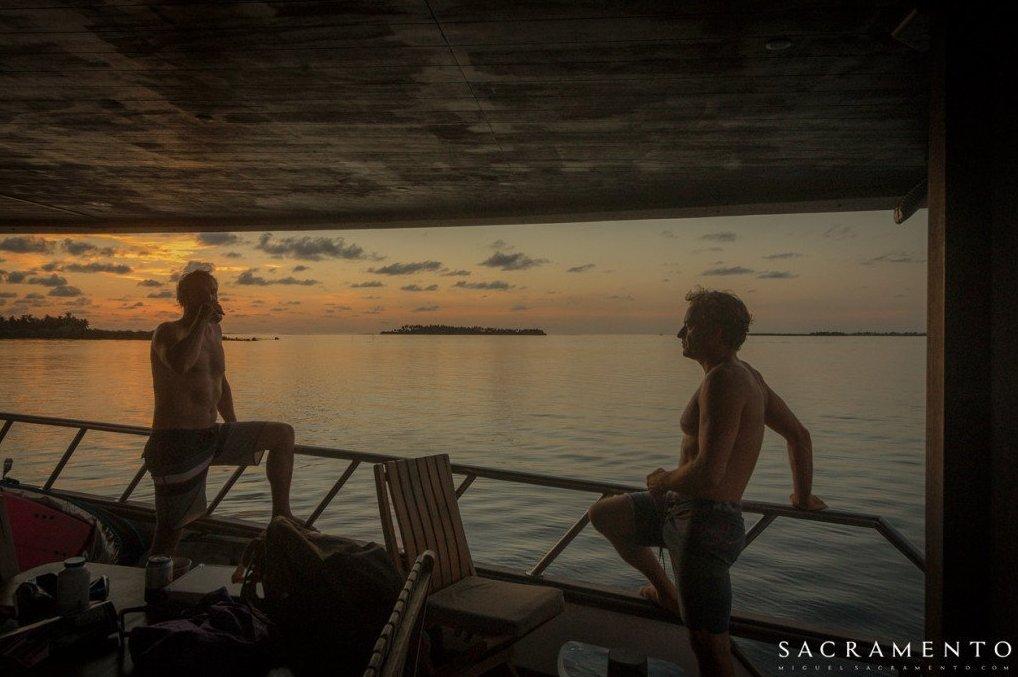
Tom: I guess the big luxury is air conditioning in the cabins – that is a beautiful luxury right there. Other than that it’s pretty easy for me. You know, every day we’ve had really great dinners and lunches and that: you’ve gotta keep exercising ‘cos the food’s so good! But yeah, this has been just a great trip. This is just a great boat you know, and it can handle a good crew too.
Tom: Yeah I do, I snowboard a little bit at home. Of course we had a really bad season…
Tom: Yeah I go to Mammoth sometimes, and that’s a good mountain.
Tom: I haven’t really done much backcountry skiing or anything. I’d like to go to Canada actually. I got an invitation to go to Canada this winter, this northern hemisphere winter. And I’d like to do that.
Tom: Oh wow. I’d like to go there actually; I’ve never been to Austria, so that would be amazing.
Tom: Well the music has really come at a good time for me: I’ve been able to spend more time playing, working on songs and recordings, and I’ve done a few tours and stuff like that. I’m going to Japan in a couple of weeks to do a tour there, and then I’m working on a new album right now, so it’s kind of a big part of what I’m doing now. At the same time I have a lot of travel stuff with Ripcurl, and I’m doing a lot of stuff with the team.
Tom: The playing live is probably the most exciting part of it, but I find that I’ve had a good experience as well recording. I was in Morocco just recording these local musicians, and working on pro tools, so I enjoy engineering and doing all the kinda producing side of it as well. It’s something that I’ve been doing for quite a while, like starting out doing home recordings and multitrack recording at home. I’ve been doing that for over 20 years, and kinda slowly learning how to do it. I kinda did it the wrong way for about 10 years, so I finally said oh, simple things, but… When we went to Morocco and met up with these local musicians it was a challenge because there was the language barrier. These guys were very good musicians, but they probably didn’t have a lot of experience in the studio, so there was all kinds of things to figure out, and like troubleshoot all the time. But in the end we got some really good stuff on that trip. So that’s the kind of thing that I’m doing now, and I’m pretty excited about the project.
Tom: I’ve had a few good ones. Sometimes you play a gig and everything just works. Sometimes its harder, and you can’t hear the monitors, and so you kinda, don’t feel like you’re in the zone, so to speak. I had a good tour with Donavon Frankenreiter on the East Coast, and we got to play at this place in Asbury Park in New Jersey where Bruce Springsteen used to play a lot. It’s a great venue: not a big venue, but you know, a really good sound system and a good kinda history, so that was a lot of fun. But I’ve been lucky to play in some nice places too.
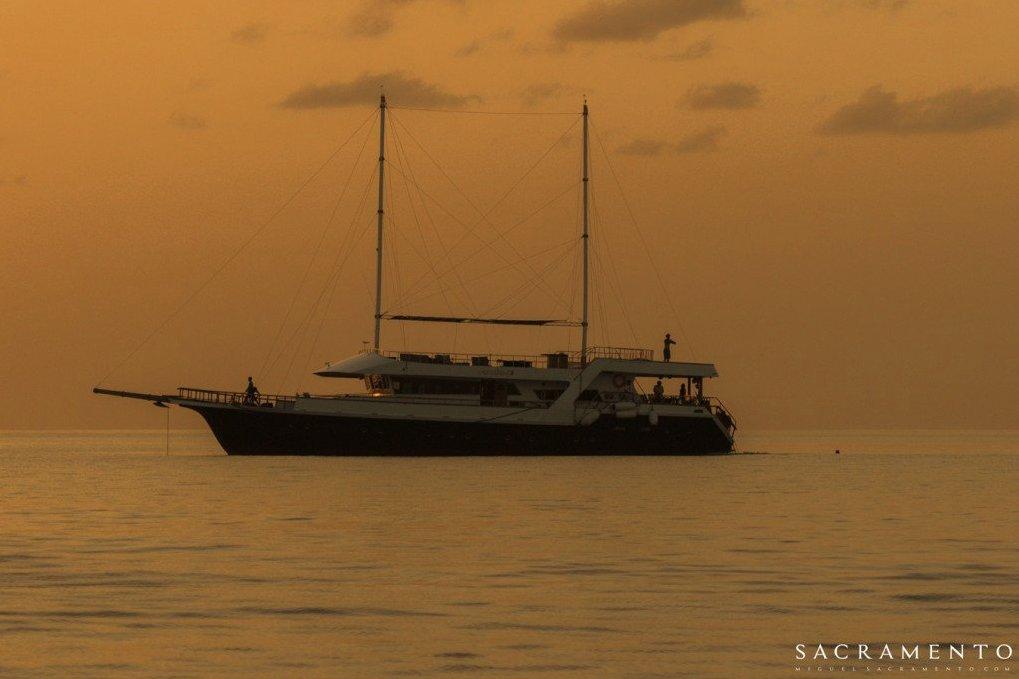
Tom: Family is obviously very important for me. I get to travel with my family and stuff, so that’s really good. My kids all surf and we travel together sometimes. Sometimes we’re all together at the same place, but that’s actually not very often. My kids are all pursuing their careers, and that has a lot to do with surfing. One of my sons lives in Australia now, and my daughter is going to South Africa soon, so I’m trying to figure out if I can go and meet her down there. So I try to, kinda… They’re all doing their own thing, they’re a little older now, so I kinda have to just figure out what their schedule is and work into what they’re doing. But we’ve had some great times. Had a really good trip to the Ivory Coast with my daughter – one of the best trips I’ve been on. We had a great time. Surfing and travelling is obviously really extra special when you can do it with your family.
Tom: Well, yeah, sometimes. Sometimes, I’m just like, “I can’t talk to you right now, I’m busy.” But it’s not that often, you know. But sometimes. As long as you have a balance I think [it’s ok], you know, like my wife won’t be offended.
Tom: Yeah, sometimes I suppose, certainly. Obviously the balance is important. I think if something that I’m doing is important to me, then my wife will understand. Mainly it’s her because, she’ll say “what are you doing, you’re supposed to be home last week, we’ve gotta, you know, what’s going on?” But she’s very understanding as well, and I think she can respect that actually: this is my job. I surf, and I’m so fortunate, and I don’t know, I just feel really lucky. But of course, if you lose that balance, then it’s not rewarding in the long run anyway, ‘cos you have to have that balance. Otherwise you wont have any more family.
Tom: You know, I guess the answer overall is no. I don’t really think it’s been a issue, and part of that is because we all love the same thing: we all love music and surfing.
Tom: Hahahahhaha hahahaha ok
Tom: Tim, Tim, how did you learn to surf when you’re from Germany? And surf good too, so well? I don’t get it!
Tom: Thank you, thank you. You too.
